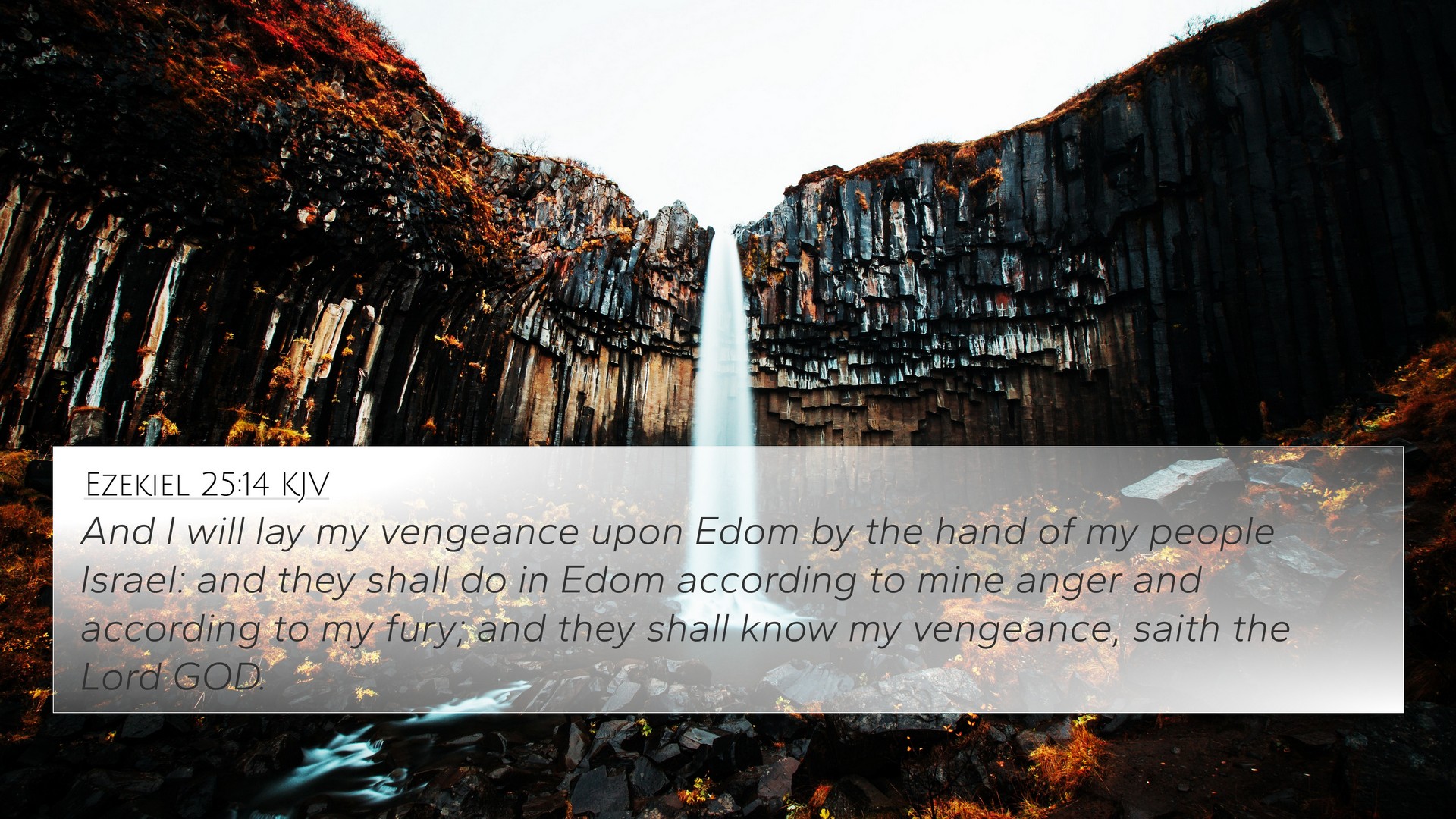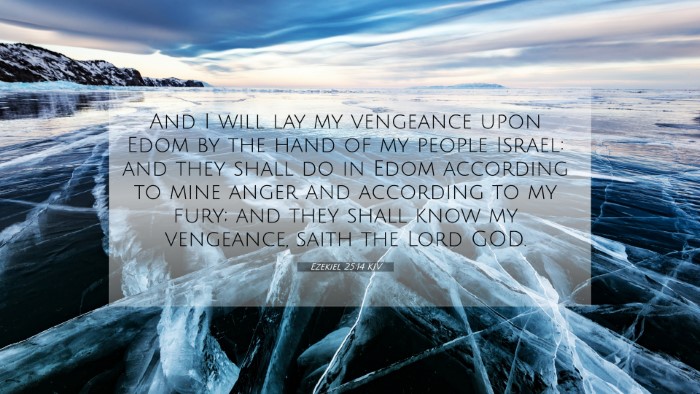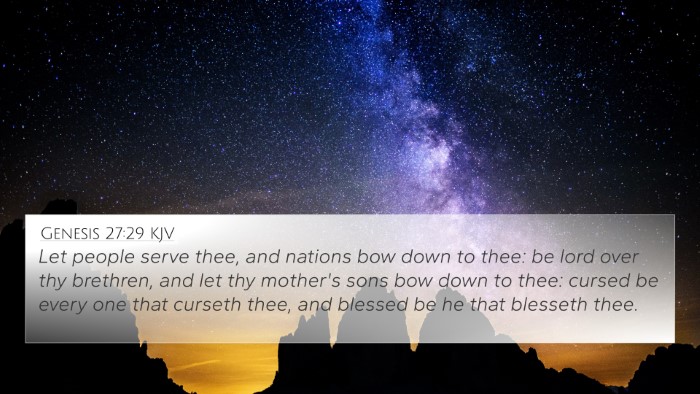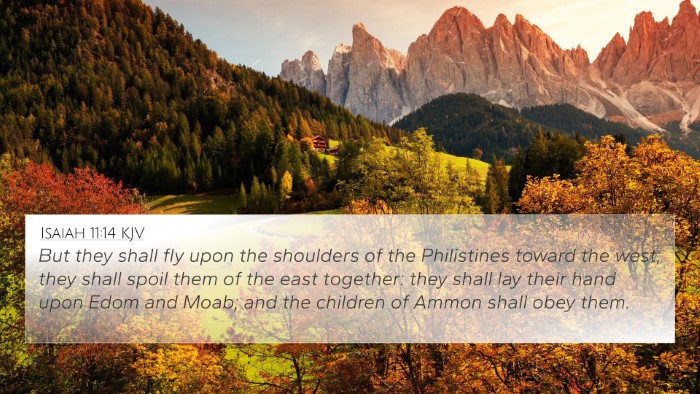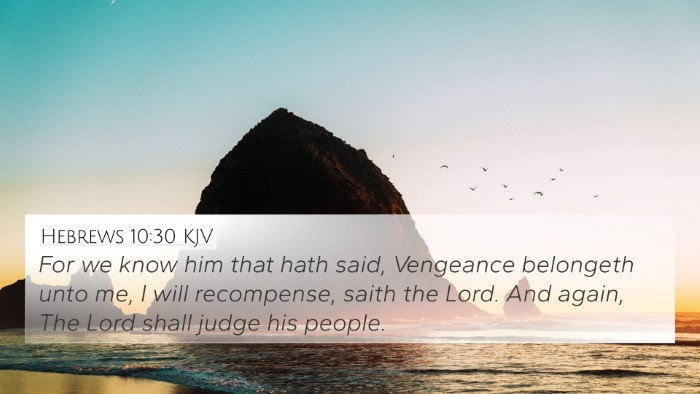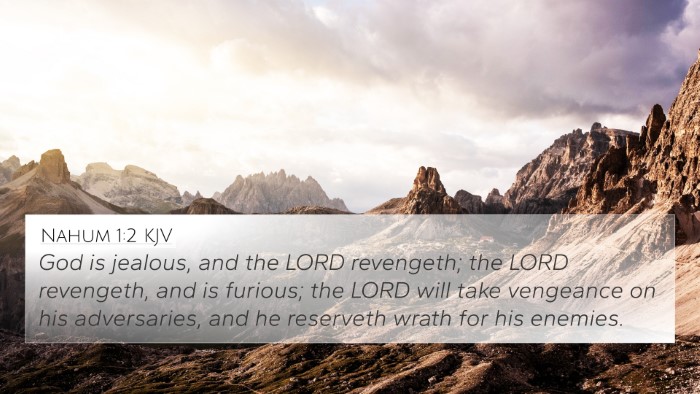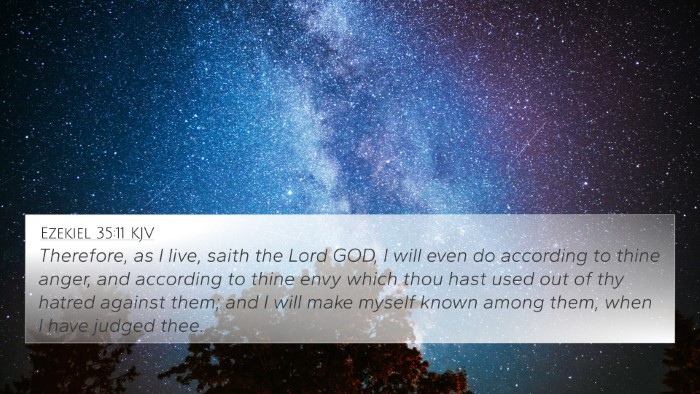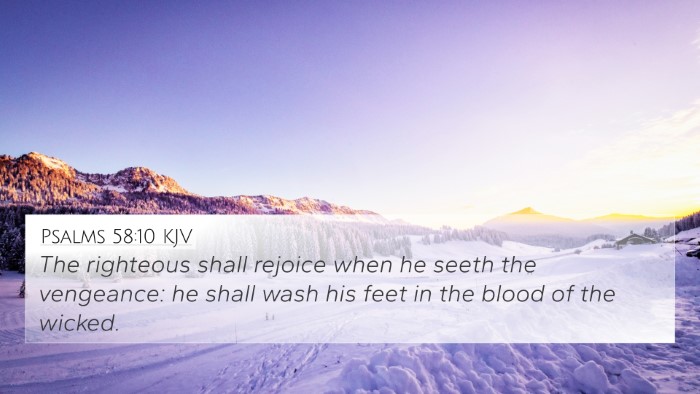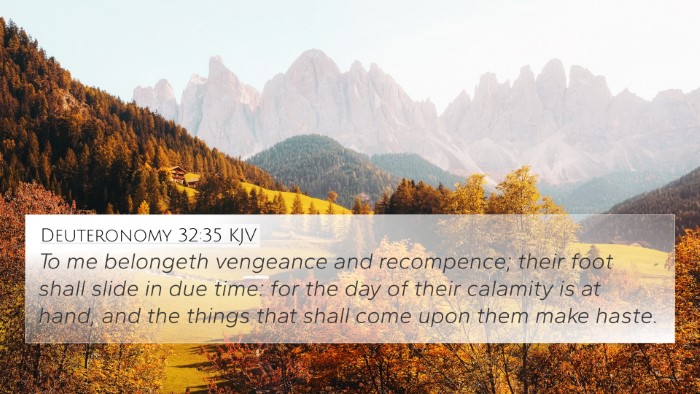Ezekiel 25:14 reads: "And I will lay my vengeance upon Edom by the hand of my people Israel: and they shall do in Edom according to mine anger and according to my fury; and they shall know my vengeance, saith the Lord God." This verse serves as a declaration of divine retribution against Edom, highlighting deeper themes of justice, vengeance, and the role of Israel as an instrument of God’s will.
Interpretation Summary:
This verse signifies God's promise to take vengeance on Edom through Israel, reflecting God's sovereignty and the consequential relationship between nations as determined by divine providence. The mention of Israel acting according to God's anger and fury shows that God's people can serve as instruments of His justice, demonstrating the complex interplay between God's will and human agency.
Key Themes and Insights:
- Divine Vengeance: This theme relates to the idea that God ultimately enacts justice, demonstrating His authority over nations.
- Israel's Role: Israel is depicted as an executor of God’s vengeance, indicating a responsibility and the seriousness of their covenant relationship with God.
- Recognition of God's Power: The verse concludes with a note that the nations will know God's vengeance, emphasizing divine retribution as a demonstration of His power and sovereignty.
Cross-References for Deeper Understanding:
- Genesis 27:41-45 - This passage reflects the historical animosity between Jacob (Israel) and Esau (the father of the Edomites).
- Obadiah 1:10-16 - A prophetic announcement focusing on Edom's downfall and their sin against Jacob.
- Isaiah 63:1-6 - Related themes of vengeance and the Lord’s punishment of nations for their transgressions.
- Jeremiah 49:7-22 - Contains God's declarations against Edom, notably similar sentiments of vengeance and punishment.
- Ezekiel 35 - Directly addresses Edom's sins and foretells their desolation, aligning with the themes presented in Ezekiel 25:14.
- Romans 12:19 - Connects the New Testament understanding of God's vengeance, echoing the ultimate justice theme.
- Revelation 19:11-21 - A vision of Christ's return as a conquering king, administering justice against nations.
Comparative Analysis:
When analyzing Ezekiel 25:14 alongside other scriptures, it becomes clear that the theme of divine retribution is consistent throughout both the Old and New Testaments. The parallels in prophetic literature often depict God utilizing Israel or His chosen people to execute His judgment, which can be seen as a prototype for New Testament teachings of God's ultimate authority. The repeated calls for nations to recognize God’s sovereignty highlight the continuity of divine justice across the scriptures.
Connections Between the Verses:
This verse connects with various passages that speak about judgment and the consequences of nations opposing God's people. The historical context from Genesis to the prophetic views in Obadiah and Jeremiah show a continuous narrative of conflict and divine justice. Each referenced verse provides situational insight, deepening the understanding of how the theme of vengeance is woven into the fabric of biblical storytelling.
Tools for Bible Cross-Referencing:
Utilizing a bible concordance or a bible cross-reference guide can greatly enhance your studies. Such tools allow readers to easily find interconnections between verses and themes, facilitating a deeper understanding of scripture as a whole.
Conclusion:
Ezekiel 25:14 serves as an important reminder of God's justice and sovereignty as expressed through Israel. By cross-referencing this verse with others, readers can uncover the rich tapestry of divine relationship, retribution, and the covenantal responsibilities bestowed upon God’s people throughout the biblical narrative.
